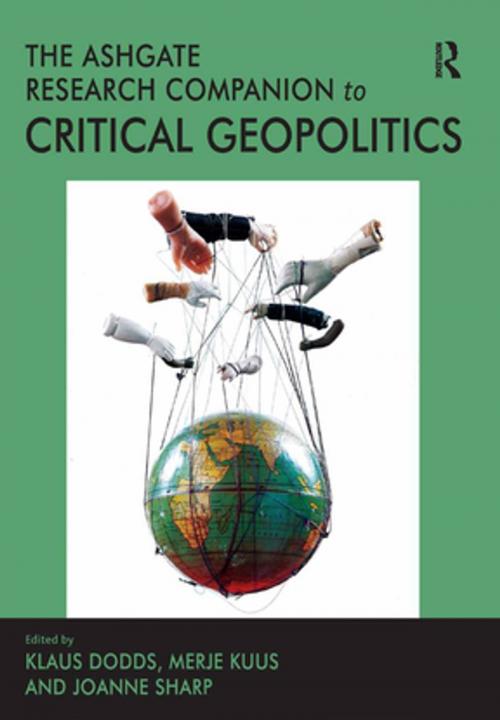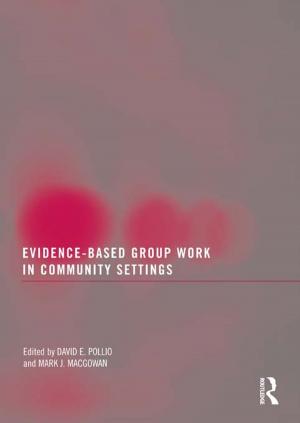The Routledge Research Companion to Critical Geopolitics
Nonfiction, Social & Cultural Studies, Political Science| Author: | Merje Kuus | ISBN: | 9781317043713 |
| Publisher: | Taylor and Francis | Publication: | April 1, 2016 |
| Imprint: | Routledge | Language: | English |
| Author: | Merje Kuus |
| ISBN: | 9781317043713 |
| Publisher: | Taylor and Francis |
| Publication: | April 1, 2016 |
| Imprint: | Routledge |
| Language: | English |
Since the late 1980s, critical geopolitics has gone from being a radical critical perspective on the disciplines of political geography and international relations theory to becoming a recognised area of research in its own right. Influenced by poststructuralist concerns with the politics of representation, critical geopolitics considers the ways in which the use of particular discourses shape political practices. Initially critical geopolitics analysed the practical geopolitical language of the elites and intellectuals of statecraft. Subsequent iterations have considered the role that popular representations of the international political world play. As critical geopolitics has become a more established part of political geography it has attracted ever more critique: from feminists for its apparent blindness to the embodied effects of geopolitical praxis and from those who have been uncomfortable about its textual focus, while others have challenged critical geopolitics to address alternative, resistant forms of geopolitical practice. Again, critical geopolitics has been reworked to incorporate these challenges and the latest iterations have encompassed normative agendas, non-representational theory, emotional geographies and affect. It is against the vibrant backdrop of this intellectual development of critical geopolitics as a subdiscipline that this Companion is set. Bringing together leading researchers associated with the different forms of critical geopolitics, this volume produces an overview of its achievements, limitations, and areas of new and potential future development. The Companion is designed to serve as a key resource for an interdisciplinary group of scholars and practitioners interested in the spatiality of politics.
Since the late 1980s, critical geopolitics has gone from being a radical critical perspective on the disciplines of political geography and international relations theory to becoming a recognised area of research in its own right. Influenced by poststructuralist concerns with the politics of representation, critical geopolitics considers the ways in which the use of particular discourses shape political practices. Initially critical geopolitics analysed the practical geopolitical language of the elites and intellectuals of statecraft. Subsequent iterations have considered the role that popular representations of the international political world play. As critical geopolitics has become a more established part of political geography it has attracted ever more critique: from feminists for its apparent blindness to the embodied effects of geopolitical praxis and from those who have been uncomfortable about its textual focus, while others have challenged critical geopolitics to address alternative, resistant forms of geopolitical practice. Again, critical geopolitics has been reworked to incorporate these challenges and the latest iterations have encompassed normative agendas, non-representational theory, emotional geographies and affect. It is against the vibrant backdrop of this intellectual development of critical geopolitics as a subdiscipline that this Companion is set. Bringing together leading researchers associated with the different forms of critical geopolitics, this volume produces an overview of its achievements, limitations, and areas of new and potential future development. The Companion is designed to serve as a key resource for an interdisciplinary group of scholars and practitioners interested in the spatiality of politics.















